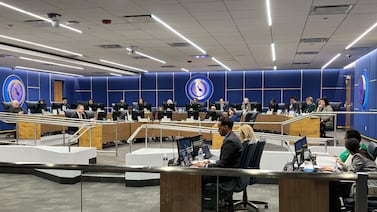Following a blockbuster year for ballot measures in 2022, this year’s general election is pretty quiet. Detroiters will see two local questions at the very end of the ballot. Both are millage questions.
Here’s what you need to know about the proposal to renew the Wayne County Regional Enhancement Millage.
What is Wayne County’s Regional Enhancement Millage?
The millage provides funding to county schools through the intermediate school district, Wayne RESA, as a supplement to state funding. Funds are shared among all 33 Wayne County school districts and more than 90 eligible public school academies based on student enrollment. Voters initially passed this millage in 2016 and renewed it in 2020 to last through the end of 2027. It’s up for another six-year renewal through 2033.
Wayne RESA says schools have used millage funding to reduce class sizes, improve safety and wellness services, and hire more teachers, among other things. In 2018, the agency said Detroit Public Schools Community District used the funds to stabilize its budget and increase staff salaries.
How much would this millage renewal cost me?
If renewed, this millage will tax property owners at a rate of about 1.98 mills per year for six years, starting in 2028. That means, for example, a homeowner whose house is worth $100,000 ($50,000 taxable value) would continue to pay about $8 per month.
Who’s in favor of the millage renewal?
Several superintendents, along with school board members and union officials, are urging voters to approve the millage renewal.
Some school boards opposed the millage in 2016 because their communities paid in more than their districts got back. But there does not appear to be an organized opposition to this year’s measure.
Shannon Mackie is a freelance writer for Outlier Media.






